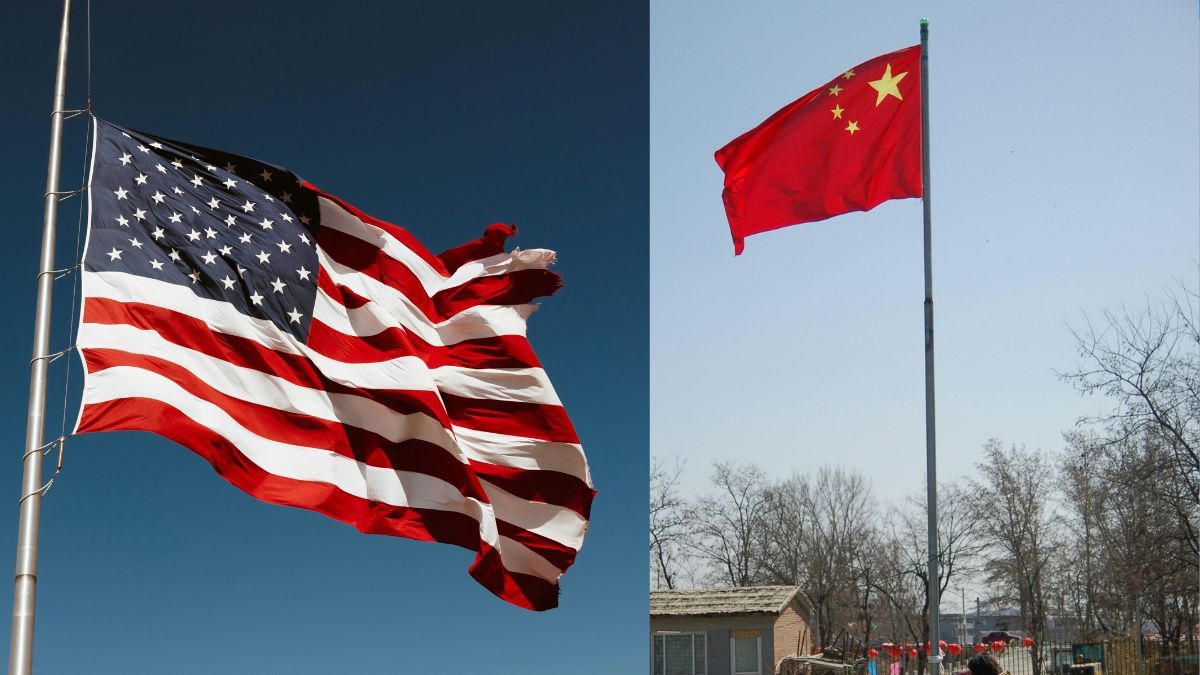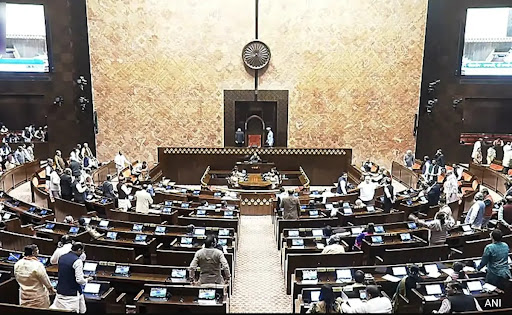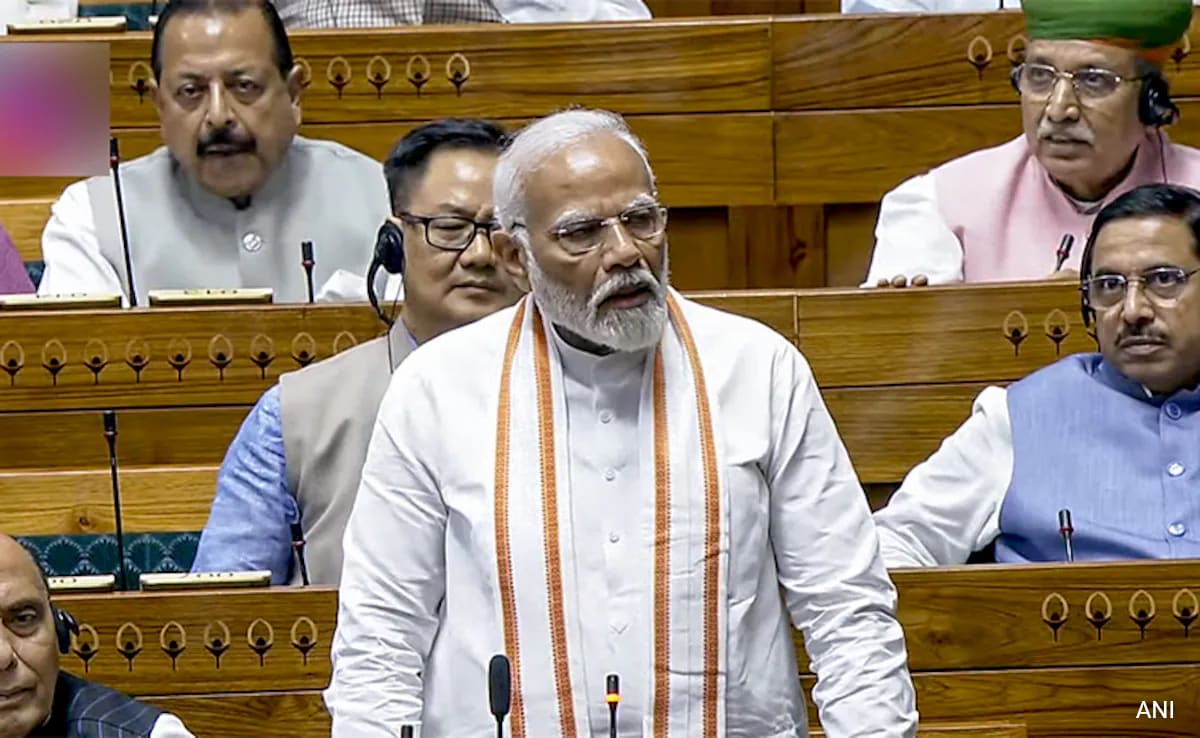<p>The U.S government has prohibited American government personnel, including their family members and contractors with security clearances, from engaging in romantic or sexual relationships with Chinese citizens while in China.</p>
<p>According to four individuals with direct knowledge of the matter, former U.S Ambassador Nicholas Burns implemented the policy in January before he departed from China, according to a report by Associated Press (AP).</p>
<p>The sources, who requested anonymity due to the sensitive nature of the directive, disclosed that while certain U.S. agencies previously had strict regulations regarding such relationships, a comprehensive “non-fraternization” rule had not been publicly enforced since the Cold War.</p>
<p>Typically, American diplomats stationed in other countries may date or even marry the locals. However, a more limited version of the policy was initiated last summer, U.S personnel were prohibited from engaging in romantic or sexual relationships with Chinese nationals employed as guards and support staff at the U.S Embassy and its five consulates in China.</p>
<p>In January, Burns, the departing ambassador, expanded its directive to ban such relations with any Chinese citizen in China, just days before President Donald Trump took office. </p>
<p>Two sources told AP that discussions about tightening these restrictions began last summer after members of Congress raised concerns that existing measures were insufficient. The House Select Committee on the Chinese Communist Party declined to comment on the matter.</p>
<p>The ban applies to all U.S missions in mainland China, including the embassy in Beijing and consulates in Guangzhou, Shanghai, Shenyang, and Wuhan, as well as the American consulate in the semi-autonomous territory of Hong Kong. However, this rule does not extend to U.S personnel stationed outside China.</p>
<p>An exception is granted to personnel already in relationships with Chinese citizens before the policy took effect; they can apply for an exemption. If denied, they must either end the relationship or resign from their position. Those who violate the directive face immediate removal from China.</p>
<p>Earlier this policy was communicated electronically and verbally to American personnel in China in January, but has not been publicly disclosed.</p>
<p>The State Department declined to comment on internal matters, while the National Security Council referred inquiries to the State Department. Burns, now vice chair at The Cohen Group, did not respond to an AP request for comment.</p>
<h2>Intelligence Threats</h2>
<p>Intelligence agencies across the world have utalised attractive men and women in order to obtain sensitive information, especially during the Cold War. The State Department and other U.S. agencies operating in China have long enforced strict reporting rules on personal relationships for American personnel stationed there, as well as in countries considered high intelligence threats, such as Russia and Cuba.</p>
<p>Declassified State Department records reveal that in 1987, the U.S government prohibited personnel in the Soviet bloc and China from forming friendships, dating, or engaging in intimate relations with locals. This policy was introduced after a U.S. Marine in Moscow was reportedly seduced by a Soviet spy. However, these restrictions were eased following the Soviet Union’s collapse in 1991, according to reports from that period.</p>
<p>China had not enforced a blanket ban on such relationships for many years. Until the recent directive issued in January, U.S. personnel in China were required to disclose any intimate interactions with Chinese citizens to their superiors but were not explicitly barred from engaging in romantic or sexual relationships.</p>
<p>U.S diplomats and intelligence specialists assert that Beijing continues to employ “honeypot” tactics to extract sensitive information from American officials. Before being deployed to China, U.S personnel receive briefings on past cases where Chinese intelligence operatives allegedly used attractive individuals to seduce American diplomats. They are also cautioned that dozens of Chinese state security agents may be assigned to monitor diplomats deemed of interest.</p>
<p>The need of the hour surfaced amid the rise in tension between Washington and Beijing over trade, technology, and geopolitical competition.</p>
<p>Peter Mattis, a former CIA analyst and president of The Jamestown Foundation, a Washington-based think tank, confirmed that there were at least two publicized cases in which Chinese agents were involved with American diplomats employed in China, but there are no such cases reported in recent past.</p>
<p>Mattis further noted that China’s state security apparatus doesn’t rely solely on professional spies to gather intelligence but also pressures ordinary Chinese citizens for information, often using threats or intimidation. As a result, any Chinese citizen in a romantic relationship with an American diplomat could be at risk of coercion.</p>
<p>“The MSS is willing to leverage any human connection that a target has to collect intelligence,” Mattis said, referring to China’s Ministry of State Security. “This rule change suggests the MSS has gotten a lot more aggressive at trying to access the embassy and U.S. government.”</p>
<p>China’s foreign ministry declined to comment on the ban, stating in a faxed response that the matter was “more appropriately addressed by the U.S”</p>
<p>Meanwhile, China has also been increasing restrictions on its personnel working abroad, according to official regulations, news reports, and four individuals familiar with China’s bureaucratic policies who spoke anonymously due to the sensitivity of the issue. </p>
<p>In recent years, Beijing has strictly enforced policies that deny promotions to civil servants whose spouses have obtained foreign citizenship. Additionally, diplomats are now limited in how long they can remain in a single foreign country, requiring some to return to China.</p>
<p>China’s foreign ministry, along with other government institutions, prohibits officials and staff from engaging in romantic or sexual relationships with foreign nationals. Moreover, members of the Chinese military and police are generally not permitted to travel outside China without explicit approval from their superiors.</p>
<p><strong>ALSO READ | <a title=”” href=”https://news.abplive.com/news/world/trump-key-us-trade-partners-worst-hit-by-trump-s-liberation-day-tariffs-1762529″ target=”_blank” rel=”noopener” data-toggle=”tooltip” data-html=”true” data-original-title=”Story ID: 1762529″ aria-describedby=”tooltip411239″> China To EU & India: Key US Trade Partners Worst Hit By Trump’s ‘Liberation Day’ Tariffs</a></strong></p>
World
No Romantic Or Sexual Relationships With Chinese Citizens: US Issues Diktat For Govt Officials In China
by aweeincm

Recent Post

Is Donald Trump Ending Dual Citizenship? Here Is A Fact-Check Of His Viral Truth Social Post
<div style=”background-color: #f7f9fa; padding: 10px;”> <h2 style=”margin: 0px; padding-top: 10px; ... Read more

Waqf Bill Passed By Rajya Sabha With 128 Votes For, 95 Against
The Waqf bill, after a smooth passage through Lok Sabha, ... Read more

“Watershed Moment”: PM Modi After Waqf Bill Clears Parliament
The passage of the Waqf (Amendment) Bill and Mussalman Wakf ... Read more

Veteran Bollywood Actor Manoj Kumar Dies At 87 In Mumbai
Veteran actor Manoj Kumar, known for his roles in patriotic ... Read more